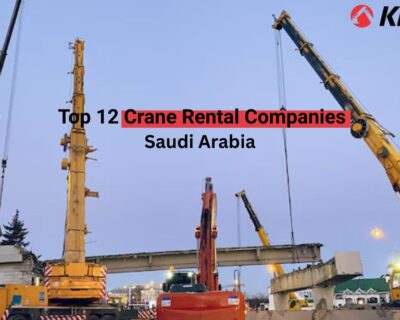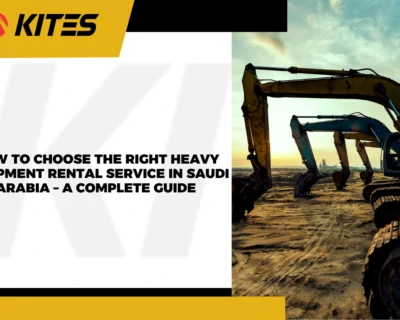
What are the certificates needed for heavy equipment operator
The Occupational Safety and Health Administration (OSHA) is critical in selling and maintaining workplace safety in a variety of businesses. OSHA is a government agency under the United States Department of Labor that was established to create and implement regulations that promote safe and healthy working conditions for employees. The primary goal is to prevent workplace injuries, illnesses, and fatalities by establishing and enforcing standards.
Importance of OSHA certification for heavy equipment operators
Because of the inherent dangers involved with their assignment requirements, OSHA certification is extremely important for heavy device operators. Heavy machinery, including as cranes, bulldozers, and excavators, offer significant risks to operators and individuals walking nearby. OSHA certification ensures that operators have obtained the necessary training and are well-versed in the safety standards applicable to their individual tool.
Specific OSHA guidelines relevant to heavy system operation
OSHA has established particular standards designed to address the specific disturbing conditions associated with heavy equipment rental. These tips are intended to reduce the risk of accidents and injuries during the usage of heavy machinery. Some important OSHA recommendations for heavy equipment operating include:
29 CFR 1926.602 – Material Handling Equipment: This specification specifies the requirements for the safe operation of a fabric handling machine, as well as procedures for training operators and analyzing equipment.
29 CFR 1926.1427 – Operator Qualification and Certification: This rule focuses on the qualifications and certification requirements for crane and derrick operators. It highlights the importance of rigorous training and evaluation to ensure that operators have the requisite competences.
29 CFR 1926.550 – Cranes and Derricks: This trend offers comprehensive guidance for the safe operating of cranes and derricks in construction environments. It includes aspects such as equipment inspection, load capabilities, and signal verbal interchange.
Mastering the Machines: Equipment-Specific Certifications
Bulldozer Operation Certification:
Heavy Equipment Operator Certification
Many bulldozer operators are required to hold a general heavy equipment operator qualification. This qualification displays a fundamental understanding of how to operate various types of heavy gear, including bulldozers.
OSHA Certification
Occupational Safety and Health Administration (OSHA) certification is frequently required to verify that operators understand and follow safety standards and procedures when operating heavy equipment.
First Aid and CPR Certification
Employers may require bulldozer operators to have basic first aid and cardiopulmonary resuscitation (CPR) certification in order to address crises on the job site in specific instances.
Commercial Driver’s License (CDL)
Operators may need a CDL to legally carry bulldozers to and from job sites, depending on the type of bulldozer and its transportation regulations.
Crane Operation Certification:
NCCCO Certification (National Commission for the Certification of Crane Operators)
In the United States and a few other nations, NCCCO certification is generally accepted. Written and practical exams are used to assess an operator’s knowledge and skills.
CIC Certification (Crane Institute Certification)
CIC certifies mobile crane operators, tower crane operators, and overhead crane operators. These credentials demonstrate proficiency in certain crane types.
OSHA Certification (Occupational Safety and Health Administration)
In the United States, the Occupational Safety and Health Administration establishes crane operation rules. OSHA certification may also include training on certain types of cranes and their safe operation.
ITE Certification (Institute of Training and Education for Crane Operators)
ITE provides certification packages aimed at safe and environmentally friendly crane operation. Their qualifications are recognized in a variety of industries.
European Crane Operator License (ECOL)
In Europe, the ECOL is a identified certification for mobile crane operators. It includes each theoretical and sensible test.
IPAF PAL Card (International Powered Access Federation
Powered Access License): While no longer particular to cranes, the PAL Card is critical for operators of mobile elevating paintings platforms (MEWPs) normally used along with cranes.
Rigging Certification
Some crane operators may additionally want certification in rigging, which includes the proper use of slings, hooks, and other rigging gadget to lift and circulate loads correctly.
Going the Extra Mile: Advanced Certifications
Advanced Rigging Certification
The Importance of Rigging in Heavy Equipment Operations
Rigging plays a crucial role in the safe and efficient operation of heavy equipment. This certification looks into the intricate components of rigging, highlighting its importance in the lifting, shifting, and securing of big loads. Understanding the fundamentals of rigging is critical for preventing injuries and ensuring the integrity of the gadget.
Opportunities Made Available by Advanced Rigging Certification
A difficult rigging certification provides doors to better work opportunities. Industries that require heavy machinery operation are constantly looking for personnel with specialized rigging skills. This qualification not only displays a commitment to safety, but also expertise in managing difficult rigging scenarios, making qualified individuals’ valuable assets in the field.
Certification of GPS Technology:
GPS Technology Integration in Modern Heavy machinery
GPS technology is progressively being integrated into modern heavy machinery for precision and efficiency. This certification delves into the integration of GPS systems in heavy machinery, focusing on how operators can use this technology to improve productivity, accuracy, and overall operating efficiency.
How GPS Certification Improves Heavy Equipment Operation abilities
GPS certification goes beyond fundamental equipment operation abilities by demonstrating expertise with advanced technology. Operators with this accreditation may explore job sites more efficiently, optimize routes, and improve project planning. Employers value these skills, making GPS certification a key differentiator in a competitive job market.
Environmental Stewardship: Environmental Protection Agency (EPA) Certification
The Environmental Protection Agency’s Role in Emissions Regulation and Environmental Impact
The Environmental Protection Agency (EPA) is critical in controlling emissions and mitigating the environmental impact of industrial activity. This certification delves into the Environmental Protection Agency’s standards and rules, emphasizing the need of compliance in heavy machinery operations.
The Importance of EPA Certification for Heavy Equipment Operators
EPA certification is important for heavy equipment operators because it assures compliance with emission standards and environmental legislation. Operators who have earned this qualification are prepared to implement environmentally friendly methods, thereby contributing to sustainability goals and lowering the ecological impact connected with heavy equipment operations.
Navigating Legal Waters: CDL and HAZMAT Endorsement
commercial driver’s license (CDL) is required. Specific Heavy Equipment Requirements
Because of size, weight, or transportation constraints, some heavy equipment requires operators to have a Commercial Driver’s License (CDL). This phase explains the specific requirements and process for obtaining a CDL for heavy equipment operation.
Importance of HAZMAT Endorsement in the Handling of Hazardous Materials:
Hazardous compounds are frequently encountered during heavy machinery operations. Understanding the risks and safety precautions associated with such chemicals is critical. This certification gives knowledge of HAZMAT regulations and strategies, ensuring that personnel can safely manipulate and ship hazardous materials.
Ensuring Legal Compliance
The CDL and HAZMAT endorsement certifications emphasize the importance of prison compliance in heavy equipment operations. Operators receive a thorough understanding of prison standards, ensuring that their activities are in accordance with regulatory requirements and contribute to a safe and lawful work environment.






